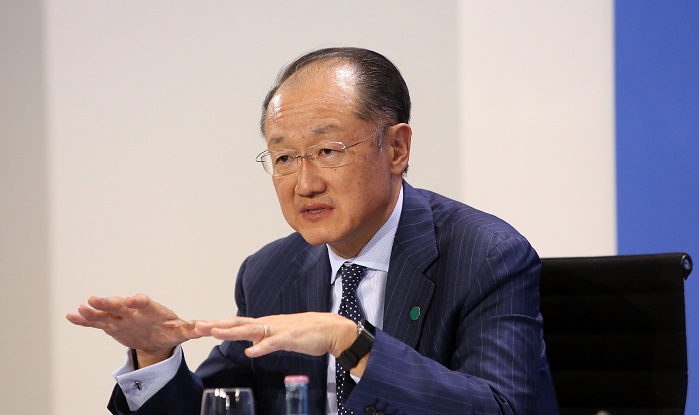Programming note: WYWW is off tomorrow, but will be back in action Monday. Enjoy your weekend!
The World Bank is helping bankers save lives
Well, that’s the idea anyway. The World Bank has tapped financial markets to help amass funds that can be quickly dispersed when the next outbreak of disease hits somewhere around the world.
This is exactly the kind of innovative finance World Bank President Jim Yong Kim was talking about when he spoke at the Milken Institute Global Conference earlier this year. Kim is a different kind of World Bank president. The guy “gets it” as the kids say and he is not afraid to try new things to help the bank solve some of the world’s toughest challenges. He was unabashed in his appeal to the finance execs at Milken, touting the many ways the World Bank can help bankers do some good while turning a nice profit.
Europe’s role in the de-globalization of banking
This paper from the Bank for International Settlements takes a look at the global banking landscape; a landscape many believe has been de-globalized since the financial crisis. The paper concludes, however, that de-globalization didn’t actually happen. Instead, European banks reduced their overseas lending in response to the crisis. If banking had de-globalized, the void this reduction would have remained empty. But that’s not what happened. Instead, banks from the US, Japan and Canada expanded their footprint to fill the void.
There are a lot of reasons European banks have been losing market share to their global counterparts in recent years. The speed of regulatory reform has been a big factor. But so has the strategic lending decisions made by those European banks.
When is does a credit data company become a credit bureau?
The explosive growth of Big Data over the last decade has made a profound impact on all kinds of industries. Perhaps none more so then mortgage lending. But at what points does all the data collection start to infringe on privacy? Sure, millions of people cry about their privacy and then post pictures of themselves do all manner of things on things on social media. But should clicking on an ad for home improvement options really become some data point whereby one might be judged worthy of a mortgage or mortgage re-fi?
I don’t know the answer. But I am guessing any firm placing a ton of stock in such minutiae will eventually miss the forest for the trees.
Is “substainable” the new “strategery?”
I know the whole concept of While You Were Working is to update you on stories that break during your work day, but I have to break that rule and highlight this video is from two days ago because it just keeps getting funnier every time I watch it. For those who might not know, Nucor is a huge steel company. The video is of the company’s CEO, John Ferriola, talking with Bloomberg about the policy moves being considered by the Trump administration to protect US steel companies from international competition.
Ferriola is a man whose compensation topped $10 million last year and he boasts in the video of meetings he has had with both President Trump and Commerce Secretary Wilbur Ross. He also uses the word “substainable” seven times over the course of this brief interview to describe the kind of steel industry US policies should be designed to build and protect. Substainable … does that mean less than stainable?
What’s so hilarious about Ferriola’s stunning lack of command of the English language is that creating a “substainable” steel industry is clearly one of Ferriola’s main talking points. He says it SEVEN times in a little over two minutes. And this video can’t be the first time he has used that word. In fact, he probably used it in his meetings with President Trump and Secretary Ross. And at no point did anyone in those meetings – or an aide afterward – whisper in his ear and say, “Do you mean sustainable?”
WYWW Appetizers
- Turns out problems in the auto lending sector aren’t confined to the US.
- Post-evolution energy policy confronts reality.
- A “Nap Bar” in Spain … Perfecto.
